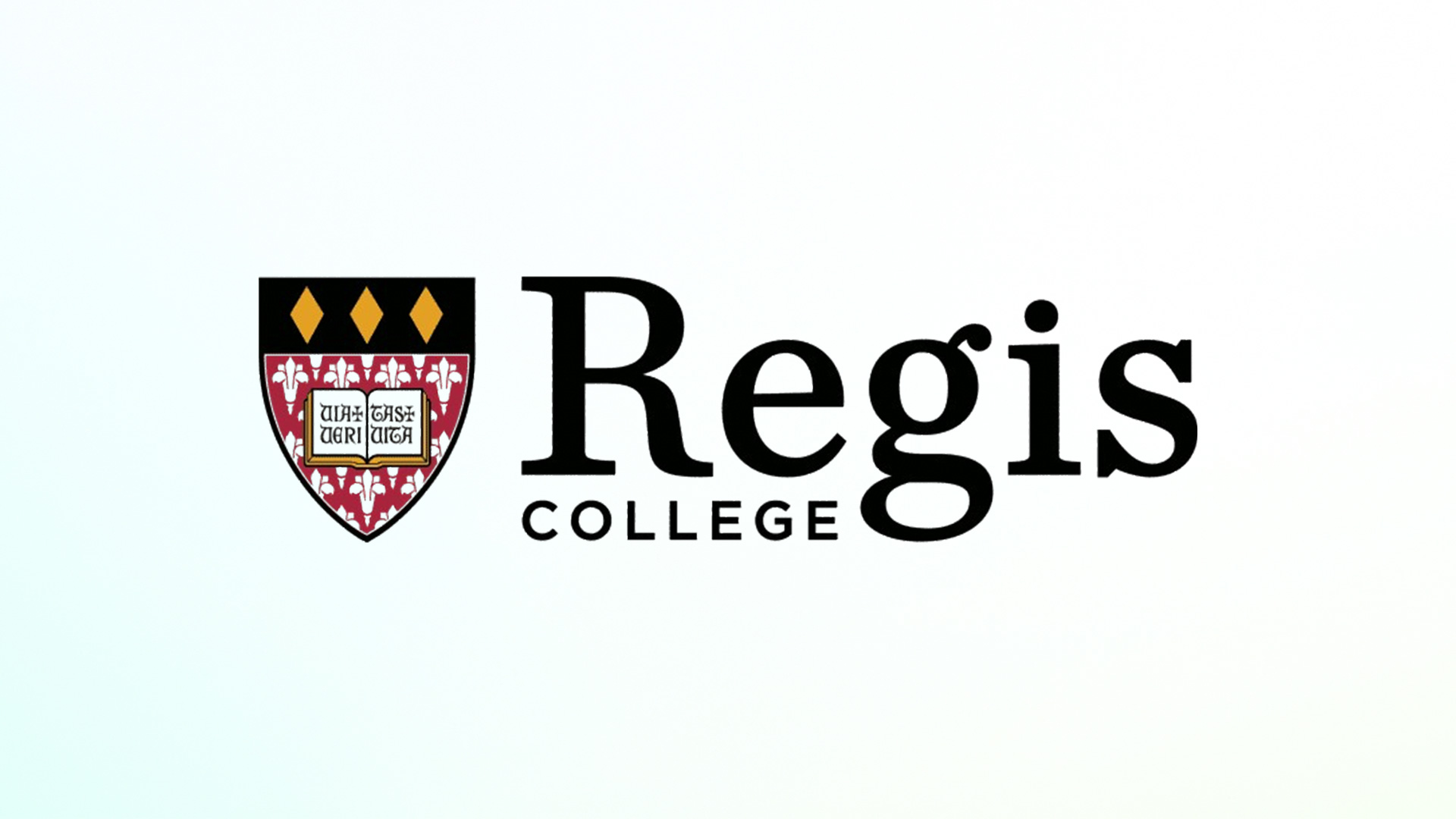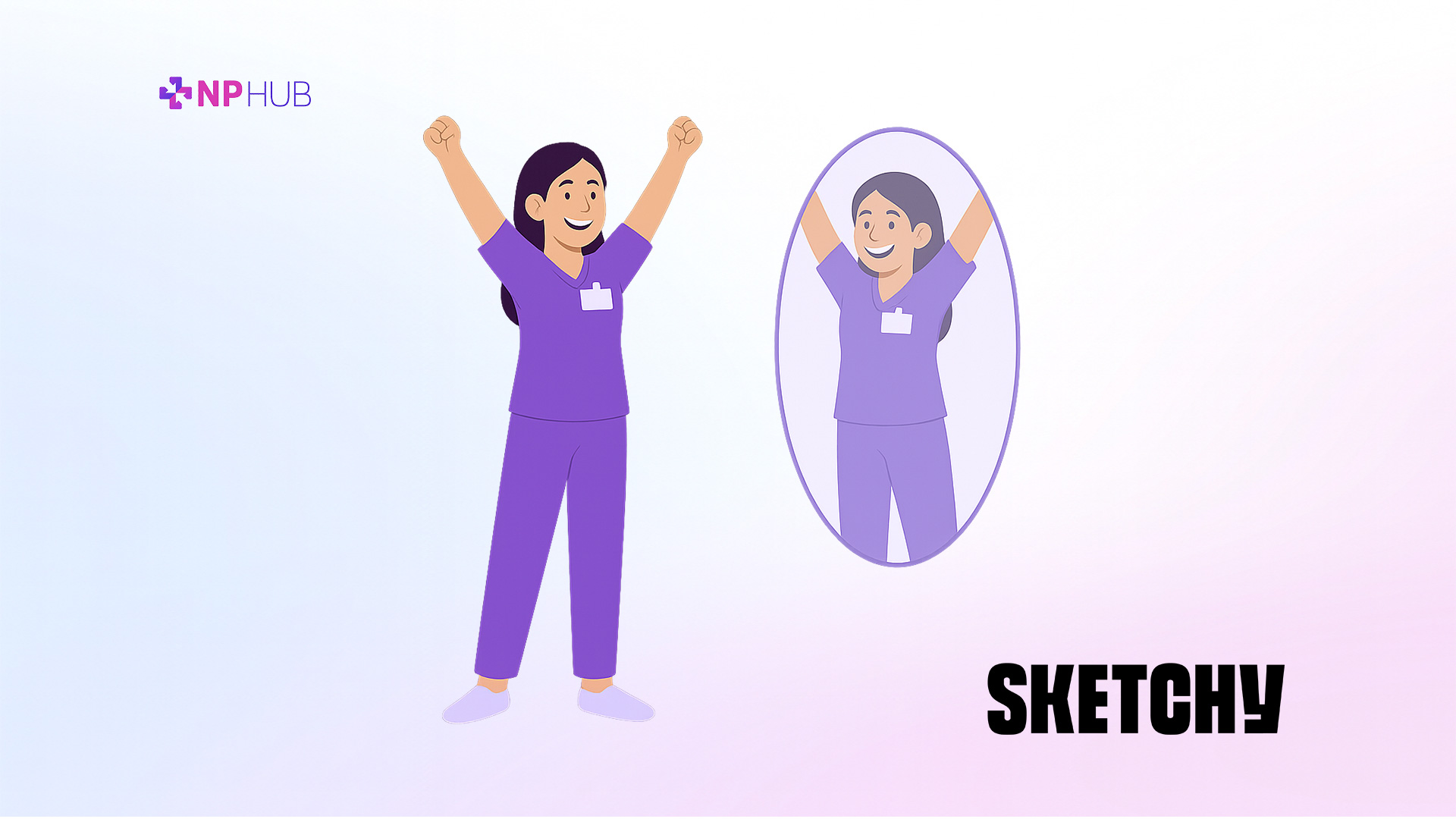TL;DR: Your NP Career Can Go Far Beyond the Clinical Setting
- Your master's degree opens countless doors. From healthcare administration and nursing education to research and telemedicine, non-patient care nurse practitioner jobs are in high demand, and they need your clinical experience and expertise.
- Impact patient outcomes at scale. Whether you're developing health policy, teaching future healthcare providers, or improving healthcare systems, you're affecting thousands of patients while leveraging your knowledge and skills.
- Clinical practice remains your foundation. Even for non-clinical nurse practitioner roles, completing your rotations builds the real-world clinical experience that gives you credibility to lead, teach, and assess complex healthcare challenges.
- Diverse practitioner jobs with increased flexibility. Explore high-growth careers in nursing education, healthcare administration, public health, telemedicine innovation, and practice management that offer better schedule control and pay potential.
- Don't let placement delays stall your programs. Companies like NPHub help you secure preceptors faster with comprehensive support, while NPHire connects licensed nurse practitioners to non-clinical opportunities that match your passion and expertise.
Your master's degree in nursing opens doors far beyond traditional clinical practice. While many aspiring nurse practitioners envision themselves diagnosing patients in bustling clinics or performing procedures at the bedside, the reality is that today's healthcare landscape offers an expansive range of non-patient care nurse practitioner jobs that can be just as rewarding—and often more flexible—than conventional clinical roles.
The nursing profession has evolved dramatically over the past decade. Healthcare organizations across the country are recognizing the unique value that nurse practitioners bring to roles outside of direct patient care. Your clinical experience, combined with your advanced education and deep understanding of healthcare systems, positions you perfectly for careers including:
- Healthcare administration and leadership roles
- Nursing education and curriculum development
- Research and quality improvement initiatives
- Public health and policy development
- Telemedicine and remote healthcare delivery
- Consulting and entrepreneurship opportunities
These non-clinical nurse practitioner positions leverage your expertise in ways that can impact thousands of patients simultaneously, rather than one at a time. Whether you're drawn to shaping health policy, advancing nursing education, or innovating healthcare delivery through technology, your skills as a healthcare provider translate beautifully to these expanded roles.
Why Consider Non-Clinical Nurse Practitioner Jobs?
As a nurse practitioner with advanced education and clinical experience, you possess a unique skill set that extends far beyond traditional patient care. Many healthcare providers find themselves drawn to non-clinical nurse practitioner roles for compelling reasons.
Key Benefits of Non-Clinical Roles:
- Increased flexibility with predictable schedules and remote work options
- Broader impact on patient outcomes across entire healthcare organizations
- Higher earning potential and clear advancement pathways
- Opportunity to leverage your clinical experience in innovative ways
- Better work-life balance without weekend or holiday rotations
Expanded Career Impact
Non-patient care nurse practitioner jobs enable you to have a greater impact on healthcare on a larger scale. Your clinical experience becomes invaluable as you:
- Teach the next generation of nurses and healthcare providers
- Develop policies that improve care for underserved populations
- Conduct research that advances evidence-based practice
- Shape healthcare administration and system improvements
Why Clinical Training Remains Essential
What makes nurse practitioners so valuable in non-clinical roles is precisely their clinical background. Your hands-on experience provides credibility that can't be replicated through theoretical study alone. This is why completing your clinical rotations successfully remains crucial, regardless of your ultimate career focus.
Every rotation builds the expertise that will make you an exceptional candidate for these alternative careers. Whether you're learning to diagnose conditions, mastering procedures, or developing your ability to treat patients, these experiences create the foundation for success in any healthcare role.
Top Non-Patient Care Nurse Practitioner Jobs
The landscape of nurse practitioner jobs extends far beyond traditional clinical settings. With your master's degree and clinical experience, you're qualified for diverse roles that leverage your skills while offering increased flexibility. Here are the top categories of best non-clinical jobs for nurse practitioners:
Healthcare Administration & Leadership
Healthcare administration represents one of the most accessible transitions for nurse practitioners seeking non-clinical roles. Your understanding of patient care workflows and healthcare systems makes you invaluable in these positions:
- Quality improvement coordinator roles that enhance patient outcomes across entire healthcare organizations
- Hospital and clinic management positions overseeing daily operations
- Healthcare system leadership roles developing policies for underserved populations
- Administrative positions that bridge the gap between clinical practice and organizational strategy
These roles typically offer regular business hours and the opportunity to impact healthcare delivery on a larger scale while applying your clinical experience to improve systems and procedures.
Nursing Education & Academic Roles
Teaching represents a natural evolution for nurse practitioners passionate about advancing the profession. Nursing education roles include:
- Faculty positions in NP programs where you can teach future healthcare providers
- Curriculum development roles that shape how nurses learn diagnosis and treatment
- Research positions advancing evidence-based practice
- Dean of nursing opportunities leading entire academic departments
Educational roles offer significant flexibility, often with summers off and opportunities for remote work. Your clinical experience provides credibility that students value, making you an effective educator who can expand their knowledge and skills.
Public Health & Policy
Public health careers allow nurse practitioners to address population health challenges and influence health policy at local, state, and national levels:
- Public health program management focusing on community wellness initiatives
- Health policy development roles that shape regulations affecting healthcare providers
- Community health initiatives targeting underserved populations
- Data analysis positions that inform population health strategies and resource allocation
These roles often involve collaboration with government agencies, non-profits, and community organizations to improve access to care and address health disparities.
Healthcare Technology & Innovation
The intersection of healthcare and technology offers exciting opportunities for tech-savvy nurse practitioners:
- Telemedicine program development and implementation
- Health informatics roles optimizing medical records systems and data management
- Digital health innovation positions developing apps and platforms for patients and providers
- Clinical decision support system development that assists clinicians in diagnosis and treatment
Technology roles often offer remote work opportunities and the chance to shape the future of healthcare delivery through innovation.
Consulting & Entrepreneurship
Independent consulting allows nurse practitioners to leverage their expertise across multiple healthcare organizations:
- Healthcare practice management consulting helping clinics optimize operations
- Quality assessment consulting that evaluates and improves patient care standards
- Support services for healthcare providers navigating regulatory compliance
- Entrepreneurial ventures creating solutions for healthcare challenges
Consulting offers maximum flexibility and the potential for higher earnings, though it requires strong business skills and networking ability.
Building Your Foundation: Clinical Training and Career Preparation
Regardless of which non-patient care nurse practitioner jobs ultimately appeal to you, completing your clinical rotations remains absolutely critical. These hands-on experiences provide the foundational clinical experience that makes you valuable in any healthcare role.
Why Clinical Rotations Matter for Non-Clinical Careers:
- Credibility with healthcare providers, administrators, and patients
- Real-world understanding of healthcare systems and procedures
- Problem-solving skills developed through direct patient care
- Knowledge of clinical practice workflows that inform policy and administration decisions
- Expertise in diagnosis and treatment that enhances your analytical ability
Your clinical rotations teach you to assess complex situations, manage multiple priorities, and respond to unexpected challenges—skills that translate directly to leadership, research, and consulting roles.
Overcoming Clinical Placement Challenges
For many NP students, securing clinical placements presents significant obstacles. The reality is challenging: there's an excess of students competing for limited preceptor availability, and many experienced healthcare providers are hesitant to take on mentoring responsibilities due to productivity concerns and past negative experiences.
Common placement challenges include:
- Shortage of available preceptors willing to teach students
- Schools providing limited support in securing placements
- Complex coordination of schedules between students, preceptors, and clinical sites
- Balancing full-time work, coursework, and placement requirements
- Geographic limitations affecting access to quality clinical sites
This is where professional support becomes invaluable. Rather than spending months searching independently while juggling your existing responsibilities, partnering with an experienced placement service can streamline the entire process and ensure you secure quality learning experiences that enhance your education.
Preparing for Your Future Career
While completing your clinical rotations, you can simultaneously prepare for your desired non-clinical career path:
- Data analysis and quality improvement methodologies
- Healthcare administration and management principles
- Communication and teaching abilities for education roles
- Research methods and evidence-based practice implementation
- Technology skills for informatics and telemedicine positions
Professional Development Strategies:
- Join professional organizations related to your interests (healthcare administration, public health, education)
- Pursue relevant certifications during or after your programs
- Network with professionals in your target field through conferences and online communities
- Develop a passion project or portfolio showcasing your expertise
- Consider additional licensure requirements for specific roles or states
Many successful transitions to non-clinical roles begin with identifying your interests during clinical rotations and building relevant skills throughout your education.
Your Path Forward: Opportunities Await
The world of non-patient care nurse practitioner jobs offers incredible diversity and potential for both personal fulfillment and professional growth whether you're drawn to healthcare administration, nursing education, public health policy, or innovative consulting roles, your master's degree and clinical experience position you for success.
Key Takeaways:
- Non-clinical nurse practitioner roles offer increased flexibility, better work-life balance, and opportunities to impact healthcare on a larger scale
- Your clinical experience is what makes you valuable in these alternative careers—it's not a detour from your goals, it's the foundation for achieving them
- Completing quality clinical rotations is essential, regardless of your ultimate career focus
- Professional support can help you secure the placements you need while managing your busy schedule
Remember, every successful nurse practitioner in a non-clinical role started exactly where you are now—as a student working to complete their clinical requirements. The key is securing quality placements that provide the clinical experience and expertise you'll need for any healthcare career.
For NP students ready to take the next step in securing their clinical placements, consider exploring comprehensive placement services that handle the coordination, paperwork, and support you need. When you're ready to expand your career options beyond traditional clinical practice, companies like NPHire specialize in connecting qualified nurse practitioners with exciting non-clinical opportunities that match their skills and career aspirations.
Your future in healthcare is limitless—but it all starts with completing those essential clinical rotations. Take the stress out of placement coordination so you can focus on learning, growing, and preparing for the exciting career opportunities that await.
Frequently Asked Questions
Do I need additional certifications or education to transition into non-patient care nurse practitioner jobs?
While your master's degree and clinical experience provide a strong foundation, some roles may require additional certifications. For example, healthcare administration positions often benefit from leadership certifications, while informatics roles may require technology training. Research the specific requirements for your target field and consider pursuing relevant certifications during your NP programs to enhance your qualifications and expand your expertise.
How soon after graduation can I transition to a non-clinical role?
A: Many non-clinical nurse practitioner positions prefer candidates with at least 1-3 years of clinical experience, as this hands-on background provides credibility and real-world understanding. However, some roles in education, research, or entry-level administration may be available to new graduates. Your clinical rotations are crucial for building the expertise that makes you valuable in any healthcare role, clinical or non-clinical.
Will I earn less money in non-patient care nurse practitioner jobs compared to traditional clinical practice?
Compensation varies significantly by role and location. While some positions, such as nursing education, traditionally offer lower salaries, many non-clinical roles—particularly in healthcare administration, consulting, pharmaceuticals, and technology—offer competitive or even higher pay than clinical positions. Additionally, many non-clinical roles provide better work-life balance and increased flexibility that can lead to higher earning potential over time.
About the author
- NPHub Staff
At NPHub, we live and breathe clinical placements. Our team is made up of nurse practitioners, clinical coordinators, placement advisors, and former students who’ve been through the process themselves. We work directly with NP students across the country to help them secure high-quality preceptorships and graduate on time with confidence. - Last updated
July 10th, 2025 - Fact-checked by
NPHub Clinical Placement Experts & Student Support Team - Sources and references
- https://www.nphire.com/blog/top-np-skills-you-need-to-excel-in-your-career-in-2025
- https://www.nphub.com/blog/clinical-experience-nursing-why-quality-experiences-are-important-for-np-students
- https://www.nursingprocess.org/non-clinical-nurse-practitioner-jobs.html
- https://www.cn.edu/cps-blog/career-paths-choosing-between-clinical-and-non-clinical-nursing/
- https://www.nphub.com/blog/become-chief-nursing-officer
Find a preceptor who cares with NPHub
Book a rotation.webp)








.webp)


.webp)



.webp)